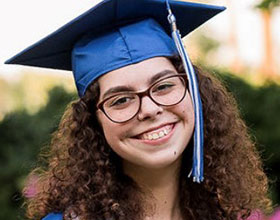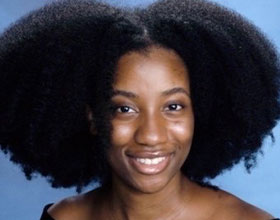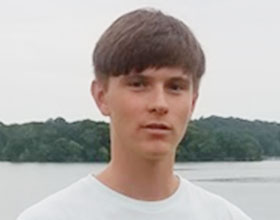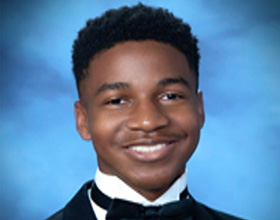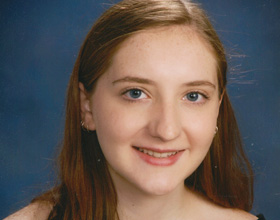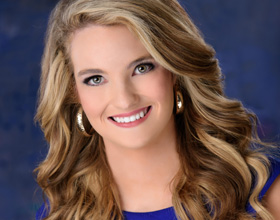Introduction
"We have one life to live, so whenever I am in the car with someone, I let them know that their decisions behind the wheel of a car affect everyone they meet on the road, so they should make wise choices."
- Gillian P.
Before I ever learned to drive, I learned the finality of how the actions of a person getting behind the wheel of a car can forever change other people's lives. With the death of my first cousin, who was killed by a drunk driver, I personally felt the impact of that effect, and it forever propelled me into a mindset that not only would I never drive distracted or drunk, but I would do what I could to prevent others from doing that as well. As a result, I have written a book, “Safety in a Car Will Help You So Far!” to educate both adults and children about the hazards of distracted and drunk driving.
We have one life to live, so whenever I am in the car with someone, I let them know that their decisions behind the wheel of a car affect everyone they meet on the road, so they should make wise choices. As explained in the following essay, I also developed a social media revolution called #DriveWise that gives tips and information about the hazards of drunk and distracted driving. I now have hundreds of followers who learn about making wise decisions.
Short Essay
Statistics show that two in three people will be affected by drunk driving in a lifetime; I have had three drunk driving crashes directly my life, the last of which forever changed my life.
On November 26, 2006, I was eight years old and was asleep in the backseat of my mom's car when a shocking impact occurred and the screeching sound of metal jarred me awake. Gasping, a sharp pain and a car filling with smoke were my reality. I cried out for help. Help did come, eventually, but this was my reality, all caused by the actions of a drunk driver.
Two years later, my family's lives were again affected by a teenage drunk driver who had been to a party drinking, had illegally purchased alcohol and was fleeing the cops when he lost control of his car. He ended up slamming into the side of my family's rental house in the middle of the night. Luckily, the tenants escaped unharmed, but the teenage boy lost his life and the house took more than four months to fix.
"For the past three years, I have been speaking to local driving classes about how distracted and drunk driving is a hazard to everyone's health and ask them to sign to sign a pledge card promising to never drink and drive. As a result, hundreds of students have made that pledge."
- Gillian P.
The final event, and the one that prompted me to take action against drunk driving, occurred on July 13, 2011, when my 22-year-old first cousin, Tiffany Herman, was doing what she did best – helping someone. She was helping our Aunt Cindy, who was having marital issues. The day started out with them having lunch with friends, and then they were going to go back to Cindy's house for her to get some clothes. Cindy's spouse, Jim, was on a drinking binge and had promised his father he would go to rehab, but when his father went to pick him up, Jim actually refused to go. Jim's father tried calling Cindy to warn her, but the message went to voicemail. After lunch with friends, both Cindy and Tiffany went back to the house to get some clothes and were surprised when Jim showed up with a knife and a gun. Somehow they escaped in Cindy's SUV, only to be chased by Jim in a truck. He rammed the back passenger side of their vehicle, causing them to crash into a tree. Tiffany was killed instantly, and Cindy was hospitalized for 10 days with a fractured vertebrae, broken arm and a brain bleed.
My grandfather, Cindy's dad, has been a pastor for more than 50 years, so I can't say it shook my faith. We all knew Tiffany was in heaven, but nonetheless, it was a devastating loss. Tiffany was the bright light in our family and suddenly she was gone. Not only did I have to cope with her loss, but I had to face the fact that the person who killed her was someone I, as well as the rest of my family, had grown to love. To this day, I still go through a gamut of emotions when thinking about these events. It was and still is hard for me to wrap my mind around it.
I no longer wanted to be seen as a victim, and I didn't want Tiffany's death to be in vain. She was always helping people, so I took a stand. At age 13, I partnered with Mothers Against Drunk Drivers and began speaking to Victims Impact Panels about my experiences, in hope that I could make a difference. Speaking at these VIPs has always been a challenge for me because the audience is filled with people who have been arrested because of DUIs and substance abuse or other driving violations. Having been a victim of a drunk driver and still reeling from the loss of Tiffany, it was extremely difficult to stand before an audience filled with drunk drivers and not be angry. However, I did it, and still do it, in hopes that these listeners will learn from their mistakes and choose to make better decisions. I tell them that “Smart people learn from their own mistakes, but wise people learn from others.” I always tell them that I hope they will be wise. The next year, I began serving on MADD's Georgia's Teen Influencer group, serving two years as a role model who searched for positive ways to influence teens.
"I have learned the joys of serving my community and putting others' needs above my own in hopes that even if I just reach one person, perhaps I can save a life, and I can make a difference."
- Gillian P.
More recently, I partnered with local law enforcement and the Georgia Department of Transportation's “Drive Alert. Arrive Alive” program to spread awareness of the hazards of distracted and drunk driving. As the Middle Georgia Teen representative for MADD, I advocated at the state legislature for stricter drunk driving laws and ignition interlock systems for first-time offenders. For the past three years, I have been speaking to local driving classes about how distracted and drunk driving is a hazard to everyone's health and ask them to sign to sign a pledge card promising to never drink and drive. As a result, hundreds of students have made that pledge. As a reminder of their pledge, I give out black and white bracelets that I designed and purchased with the motto, “Be Accountable, If You Drink, Don't Drive” engraved upon it. They serve as a reminder that the choice to drink and drive is a black-and-white decision.
Realizing that my generation is very social-media savvy, I also developed social media accounts for #DriveWise with Facebook that educate the public about distracted and drunk driving, and I give out business cards listing these accounts as well as a toll-free number for free tows for drunk drivers.
The fact that an intoxicated driver has driven drunk 80 times before their first arrest is something that still terrifies me to this day. Especially when driving at night, I wonder how many drunk drivers I may meet on the road. However, I am no longer a victim of a drunk driver. I have learned the joys of serving my community and putting others' needs above my own in hopes that even if I just reach one person, perhaps I can save a life, and I can make a difference.
- Gillian P.

